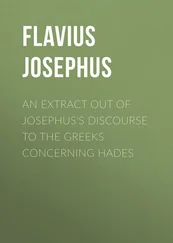Sarah Caudwell - The Shortest Way to Hades
Здесь есть возможность читать онлайн «Sarah Caudwell - The Shortest Way to Hades» весь текст электронной книги совершенно бесплатно (целиком полную версию без сокращений). В некоторых случаях можно слушать аудио, скачать через торрент в формате fb2 и присутствует краткое содержание. Жанр: Иронический детектив, на английском языке. Описание произведения, (предисловие) а так же отзывы посетителей доступны на портале библиотеки ЛибКат.
- Название:The Shortest Way to Hades
- Автор:
- Жанр:
- Год:неизвестен
- ISBN:нет данных
- Рейтинг книги:5 / 5. Голосов: 1
-
Избранное:Добавить в избранное
- Отзывы:
-
Ваша оценка:
- 100
- 1
- 2
- 3
- 4
- 5
The Shortest Way to Hades: краткое содержание, описание и аннотация
Предлагаем к чтению аннотацию, описание, краткое содержание или предисловие (зависит от того, что написал сам автор книги «The Shortest Way to Hades»). Если вы не нашли необходимую информацию о книге — напишите в комментариях, мы постараемся отыскать её.
The Shortest Way to Hades — читать онлайн бесплатно полную книгу (весь текст) целиком
Ниже представлен текст книги, разбитый по страницам. Система сохранения места последней прочитанной страницы, позволяет с удобством читать онлайн бесплатно книгу «The Shortest Way to Hades», без необходимости каждый раз заново искать на чём Вы остановились. Поставьте закладку, и сможете в любой момент перейти на страницу, на которой закончили чтение.
Интервал:
Закладка:
“My dear Ragwort,” I said, “do you really think…?”
But it would take more than any such mild remonstrance to deter Ragwort from what he conceived to be his duty. He threw down the jacket, and set off at great speed towards the scene of action. Pausing to retrieve the garment so impetuously discarded, I followed him at a more leisurely pace.
The dryad was not enduring her wrongs in silence. I could not distinguish the words in which she reproached or pleaded with her assailant; but they were uttered with an astonishing fluency, and in a rhythm curiously familiar to me, which for several seconds I sought in vain to identify. Continuing to struggle, she again managed to break free and once more, though with her head still turned to continue her tirade, began to run away from the coppice in the direction of the house.
Ragwort, as my readers may recall, was at the same time running away from the house in the direction of the coppice, at a speed which admitted of neither check nor swerve. Collision in such circumstances was scarcely to be avoided: I was close beside them before either recovered breath.
“Oh dear,” said Leonidas Demetriou, removing his blond wig, “I’m terribly sorry. It’s Mr. Ragwort, isn’t it?”
“My dear Ragwort,” I said, assisting my young friend to his feet, “you might reasonably imagine, I suppose, that a dryad would address her ravisher in Greek; but surely you could not expect her to achieve ex tempore the actual meter of classical tragedy?”
“Poor Tomkinson is quite upset,” said Leonidas, demurely pouring sherry in Peter Hayward’s oak-panelled study, “at being suspected of an attempted ravishment. He’s very respectable, and wants to go into the Stock Exchange. I’ve told him, of course, that after today’s incident it will be quite impossible — unless we can all be persuaded to keep it very dark.”
Leonidas had changed from the floating white chiton which he had worn to rehearse the title role in Euripides’ Helena into more conventional garments. There remained about him, even so, something curiously equivocal — that slight wariness, that imperceptibly more alert apprehension, that attentiveness even in repose to the evidence of the senses, which is found in those who in some alien environment never cease to watch for danger or advantage: in migrants between countries or classes; in those conscious of some unorthodox erotic preference; in spies; and in cats always, however domesticated.
“I do hope he didn’t believe you,” said Peter Hayward. Fair-haired, fresh-complexioned, with the square-cut features which seem incapable of guile, the master looked more boyish than the boy.
“Of course he didn’t,” said Leonidas. “Even Tomkinson has more sense than that.” But he smiled as he said this a rather Byzantine smile, full of malice and intrigue.
We talked for a while of Euripides. The open-air performance of the Helena which was shortly to mark the ending of the Godmansworth summer term was under Peter Hayward’s direction: having sometimes been prevailed upon by the undergraduates of St. George’s to undertake a similar responsibility, I was well able to sympathize with the difficulties of his task. I happened, moreover, to be at that time rather particularly well-informed about the play itself. A few days before my young colleague Sebastian Verity had sought my advice as to how he might persuade Selena to enter into some more formal — that is to say, matrimonial — arrangement; knowing well how attached she is to the darling douceurs of the single life, I had thought it kind to divert him from so unfruitful a topic. I invited him to tell me about an article he had lately published in one of the learned journals, and which I had heard much praised, concerning the transmission of the texts of Euripides, with particular reference to the Helena. The diversion proved so successful, and he addressed me at such length on the discrepancies between the L Codex and the P Codex, that I almost repented of having raised the subject. I now had the pleasure, however, of displaying more learning than I was truly possessed of.
I was recalled with some reluctance to the purpose of our visit. It would be prudent, said Ragwort, if I were to gratify at once my desire to see the gardens: Leonidas, perhaps, would be kind enough to act as my guide, while Ragwort himself assisted his friend in the final preparations for lunch. He gave me a glance intended to remind me that I should make the most of the opportunity to question Leonidas. Peter Hayward gave his pupil a rather similar look, intended no doubt to remind him that he should not waste the opportunity to impress favorably a fellow of St. George’s.
The boy did very well. Familiar, or contriving to appear so, with the history of the distinguished family who had formerly lived at Godmansworth, he diligently pointed out to me how it was reflected in the design and architecture of the place. Traces remained of the manor house built by the first to be eminent, the businesslike adventurer knighted by the first Elizabeth; his grandson, by two judicious marriages, sufficiently improved his fortune to buy a peerage from James II and rebuild the house in the style of the English Renaissance, with that grand simplicity which disdains all ornament but its own harmonious proportions; a more remote descendant, rising to an earldom under one of the Georges, had commissioned William Kent to design the gardens — a created Arcadia, in which duchesses and statesmen might play at nymphs and shepherds.
Over winding paths silent with moss the chestnut trees spread a network of translucent green. Wherever the eye might have wearied of shade there was a shaft of sunlight; wherever it might have surfeited of green it found the dark glow of a copper beech, the purple of a rhododendron, or a wild pink hyacinth among the grass. At the highest point was a little rotunda, with gray stone columns of the Ionic order: the paths all led towards it, but with a teasing circuity; catching a glimpse of it through the trees and thinking to walk in that direction, one somehow lost sight of it; and at last came upon it again as if unexpectedly, with a sense of discovering by chance some hidden and mysterious place.
I sat down on the shallow steps of the rotunda to admire the view laid out with such careful carelessness for that purpose. With perhaps an equally studied abandon, the boy lay full length on the grass nearby, the sunlight through the leaves dappling him with shadows. I reminded him (though I thought he already remembered) of our previous brief meeting, and expressed my regret at its tragic sequel.
“Deirdre? Yes, poor Deirdre.” His tone did not imply any depth of personal grief.
“Forgive me,” I said, “if the subject is too painful to speak of. You were, I dare say, on very close terms with your cousin?”
He gave me a slightly satirical look, knowing that his manner had not suggested that. “She and Millie used to spend a lot of time with us when we were living in England. And after we went back to Corfu, they generally stayed with us for the holidays. So I suppose we’d seen a good deal of each other. But I’m afraid I didn’t like her much — you will think, perhaps, Professor Tamar, that I ought not to say so?”
He smiled again his malicious Byzantine smile, as if mocking the convention which he imputed to me. His eyes were not dark, as his coloring led one to expect, but a bright clear shade of blue — the color of lapis lazuli.
“My dear boy,” I answered, “I am an historian — my profession largely consists of speaking ill of the dead.”
“You see,” he went on, as if feeling after all some need to justify himself, “there was nothing she seemed to like. She didn’t like sailing or dancing or having lunch in the taverna or anything else the rest of us did. But if we didn’t take her with us, she complained of being left out. And if we did, she just kept saying how miserable she was until we had to take her home again.”
Читать дальшеИнтервал:
Закладка:
Похожие книги на «The Shortest Way to Hades»
Представляем Вашему вниманию похожие книги на «The Shortest Way to Hades» списком для выбора. Мы отобрали схожую по названию и смыслу литературу в надежде предоставить читателям больше вариантов отыскать новые, интересные, ещё непрочитанные произведения.
Обсуждение, отзывы о книге «The Shortest Way to Hades» и просто собственные мнения читателей. Оставьте ваши комментарии, напишите, что Вы думаете о произведении, его смысле или главных героях. Укажите что конкретно понравилось, а что нет, и почему Вы так считаете.












